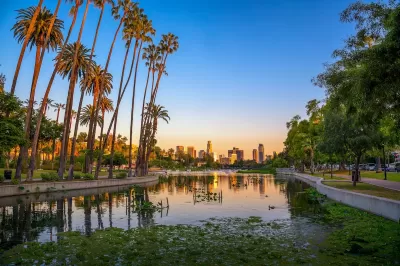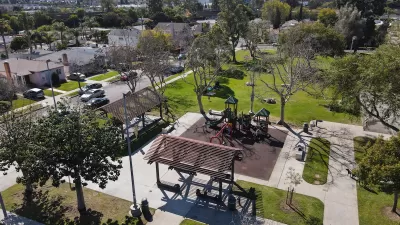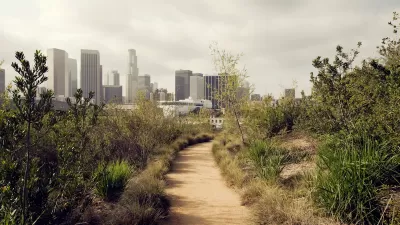Los Angeles is launching a citywide park needs assessment to gather resident input on improving its park system, addressing inequities in access, and making the case for increased funding and long-term investments.

Los Angeles is launching a citywide effort to engage residents in shaping the future of its parks, as the city grapples with declining park quality and inequities in access. According to the Trust for Public Land’s national "ParkScore" rankings, Los Angeles is currently 88th out of 100 major cities, reflecting decades of underinvestment and disparities in park access. Nearly 40% of Angelenos lack a park within walking distance, with low-income communities of color disproportionately affected. Meanwhile, the city faces a $2.1 billion backlog in deferred maintenance, staff shortages, and the expiration of a key funding source next year. In response, the Department of Recreation and Parks is conducting a comprehensive park needs assessment to gather public input and advocate for renewed investment in green spaces.
Beginning next month, the city will hold multilingual meetings, workshops, and hands-on activities in diverse neighborhoods to better understand residents’ concerns and priorities. A multilingual website and citywide survey will allow Angelenos to provide feedback on issues such as safety, accessibility, and park conditions. Advocates hope this data-driven approach will build a stronger case for increased funding, ensuring that parks remain an essential part of the city’s infrastructure rather than a secondary priority. With advanced mapping and analysis, officials plan to use community insights to guide long-term investments, prioritizing areas with the greatest need.
Supporters of the initiative emphasize that parks are more than just recreational spaces — they are vital community assets that promote public health, social connection, and climate resilience. “With a dramatic increase in how many hot days exist in L.A., parks with tree canopies can act as cooling centers in neighborhoods,” said Guillermo Rodriguez of the Trust for Public Land. Jon Christensen, a UCLA professor and consultant on the project, believes this effort will set a national standard for park planning, ensuring that investments lead to tangible improvements for all residents. “It will set the stage for improving and expanding our park system across the city,” he said, “prioritizing areas of highest need and focusing park funding to achieve visible, tangible results.”
FULL STORY: Los Angeles Asks Residents to Help Plan the Future of City’s Parks

Planetizen Federal Action Tracker
A weekly monitor of how Trump’s orders and actions are impacting planners and planning in America.

Maui's Vacation Rental Debate Turns Ugly
Verbal attacks, misinformation campaigns and fistfights plague a high-stakes debate to convert thousands of vacation rentals into long-term housing.

Restaurant Patios Were a Pandemic Win — Why Were They so Hard to Keep?
Social distancing requirements and changes in travel patterns prompted cities to pilot new uses for street and sidewalk space. Then it got complicated.

In California Battle of Housing vs. Environment, Housing Just Won
A new state law significantly limits the power of CEQA, an environmental review law that served as a powerful tool for blocking new development.

Boulder Eliminates Parking Minimums Citywide
Officials estimate the cost of building a single underground parking space at up to $100,000.

Orange County, Florida Adopts Largest US “Sprawl Repair” Code
The ‘Orange Code’ seeks to rectify decades of sprawl-inducing, car-oriented development.
Urban Design for Planners 1: Software Tools
This six-course series explores essential urban design concepts using open source software and equips planners with the tools they need to participate fully in the urban design process.
Planning for Universal Design
Learn the tools for implementing Universal Design in planning regulations.
Heyer Gruel & Associates PA
JM Goldson LLC
Custer County Colorado
City of Camden Redevelopment Agency
City of Astoria
Transportation Research & Education Center (TREC) at Portland State University
Jefferson Parish Government
Camden Redevelopment Agency
City of Claremont





























